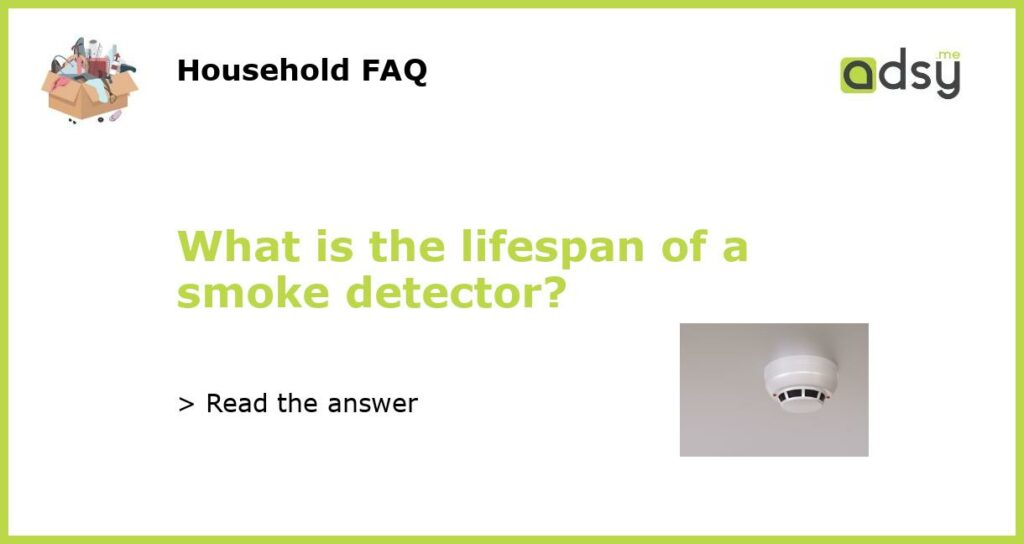The Importance of Smoke Detectors
Smoke detectors are essential safety devices that can help save lives in the event of a fire. They detect smoke in the air and emit a loud alarm, alerting occupants of a potential fire so they can evacuate quickly. However, like any device, smoke detectors have a lifespan and need to be replaced periodically to ensure they are functioning properly.
Lifespan of Ionization Smoke Detectors
There are two main types of smoke detectors commonly used in homes: ionization and photoelectric. Ionization smoke detectors use a small amount of radioactive material to ionize the air inside the device. When smoke particles enter the chamber, the ionization process is disrupted, triggering the alarm. The lifespan of ionization smoke detectors is typically between 8 to 10 years.
Lifespan of Photoelectric Smoke Detectors
Photoelectric smoke detectors use a beam of light to detect smoke particles in the air. When smoke enters the detection chamber, it scatters the light beam, triggering the alarm. These types of detectors are particularly effective at detecting smoldering fires, such as those caused by cigarettes or electrical faults. The lifespan of photoelectric smoke detectors is usually between 10 to 15 years.
Factors Affecting the Lifespan
Several factors can affect the lifespan of a smoke detector. The primary factor is the type of technology used in the device. Ionization smoke detectors typically have a shorter lifespan compared to photoelectric detectors. However, it’s important to note that both types of detectors can become less sensitive over time, compromising their effectiveness.
Another factor to consider is the quality of the smoke detector. Cheaper, low-quality detectors may have a shorter lifespan compared to higher-quality models. Regular maintenance and testing of smoke detectors are also crucial for ensuring their longevity. Dust and debris can accumulate inside the device, leading to false alarms or reducing its sensitivity.
When to Replace a Smoke Detector
It is recommended to replace smoke detectors every 10 years, regardless of the type. Additionally, if a smoke detector is not functioning properly, it should be replaced immediately. Signs of a malfunctioning smoke detector include frequent false alarms, a weak or nonexistent alarm sound, or a test button that does not work as expected.
Additionally, it’s important to conduct regular testing of smoke detectors to ensure they are working correctly. This can be done by pressing the test button, which simulates the presence of smoke and should trigger the alarm. If the smoke detector fails to sound the alarm during the test, it should be replaced.
To maintain the overall safety of your home, it’s crucial to have functioning smoke detectors. Regularly replacing them and conducting routine maintenance will help ensure they are operating at their optimal level and can effectively detect the presence of smoke in the event of a fire.






